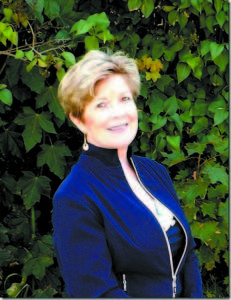At the Polls: House District 98

Roxanna Hagerman
Republican
• Age: 59
• Resident of Bridgton; daughter, Ali McEwen, lives in Virginia with her husband Marc and baby Calvin; daughter, India Bell, attends Plymouth State University as a junior.
• Education: Presque Isle High School; in the fall of 1971, instead of heading off to college, I toured Europe which was a fantastic educational experience; John Delaria Pyrametric School of Design; Hillsdale College Course on the U.S. Constitution.
• Business: Owned and operated own business in Bridgton for 30 years; while married to J.R. Mains, I witnessed first-hand how job-killing regulations, the high cost of worker’s compensation, insurance and through-the-roof cost of three phase power shut down this third-generation manufacturing facility. Factor in personal property taxes (business tax), payroll tax and real estate tax…it was devastating for the community and the state to lose this Bridgton business; also owned apartment buildings and dabbled in real estate.
• Professional and community groups: Currently serve on the Bridgton Planning Board; served two terms on the Bridgton Budget Committee.
• Awards, honors: Walt Disney medal for completing the 26.2 marathon.
• Endorsed by National Rifle Association and Defense of Liberty PAC.
House District 98: Bridgton, Harrison, Sweden, Stow and Lovell.
The Candidates: With incumbent G. Paul Waterhouse retiring, the candidates for House District 98 are Republican Roxanna “Roxy†Hagerman and Democrat Lisa Villa.
Their Positions: The News asked the candidates the following questions (answers arranged alphabetically):
Q. Gridlock is a problem, so how do you propose to overcome partisan politics?
Hagerman: I don’t believe there is any gridlock in Augusta under Republican leadership. This last legislature under Republican leadership and along with Governor LePage have started to get Maine back on track with regulatory reform, health insurance reform, tax reform and reforming agencies like the Turnpike and Maine State Housing, which the Democrats have corruptly managed for decades.
I want to continue the good work of area legislators like Rick Sykes, Paul Waterhouse, Rich Cebra and Ralph Sarty. The Democrats running for office in our area want to stop the common sense reforms that are benefiting the people of the Lake Region and all of Maine.
Villa: Gridlock is a problem at the state and federal levels. It’s time to send representatives to Augusta who will work across party lines in the best interest of Maine people, not political parties. I have served on non-partisan committees throughout my career. Together, we balanced budgets, prioritized projects for the Maine Department of Transportation, passed a county charter and improved transparency and efficiency in government. We have to do this an the state level. I will support any idea — left, right or center — that moves Maine forward.
Q. What characteristics would you bring to the position that would make you an effective politician?
Hagerman: I am self-reliant and understand what it means to live within one’s means without government handouts. I have a strong work ethic learned as a youngster by working the potato fields of Aroostook County. In this race for Maine House, special interests know I’m not their gal because I’m running to represent you, not them.
Villa: My ability to collaborate and cooperate. I have eight years of experience at the local, regional and county levels, serving on many committees in leadership roles. I have defended the needs of rural Maine while serving on county committees and I will do the same in Augusta. I’m not afraid to tackle hot button issues or ask questions. As Cumberland County Finance Committee chairman, I led the opposition to last years Civic Center Bond Referendum because it wasn’t fiscally responsible and didn’t serve the needs of western Maine.
Q. What do you believe are the three major issues facing the state, and how would you propose to address them?
Hagerman: First and foremost, I believe we need to get our local economy firing on all cylinders.
(1.) High energy costs. Maine is among the poorest and coldest states in the nation, and yet the cost of energy to heat our homes is among the highest. Let’s take a look at hydro and end government meddling that will open the door to increased competition with the free market and lower energy prices.
(2.) Burdensome taxes and regulations. Small business owners, who are the backbone of Maine’s economy, find it almost impossible to deal with the strangling effect of both. We need to use common sense and take a look at policies our N.H. neighbor has in place.
(3.) State budget. I would push for a balanced budget. It is irresponsible and immoral to saddle future generations with new debt. Maine’s government, like ordinary people, must make a budget and stick to it. We can no longer continue this policy of spending more than we take in.

Lisa Villa
Democrat
• Age: 47
• Resident of Harrison; children, Brandon age 28, and Taylor, 15.
• Education: High School; Residential Real Estate Law; Emergency Medical Technician (EMT); Maine Concealed Weapons Permit Certification; American Red Cross CPR/AED Instructor.
• Professional: Six years of service in municipal and county government; Town of Harrison Selectman, vice-chairman; Cumberland County Finance Committee, chairman; Cumberland County Development Block Grant Municipal Oversight Committee, vice chairman; Cumberland County Charter Commissioner, co-chairman; member of the Lakes Region Development Council and Lakes Region Transportation Coalition; Lakes Region Cable Consortium, chairman.
• Business: Small business owner, Realtor/Associate Broker 1984-1986 and 2003-2007; US Airways 1986-present.
• Community groups: Veterans of Foreign Wars Ladies Auxiliary, officer; Honor Flight Maine, co-chairman; Parent-Teacher Organization, past officer; member of the Lakes Environmental Association and Harrison Historical Society; past volunteer of the Harrison Fire Department.
• Awards: Municipal Energy Efficiency Grant $10K; Downtown Revitalization Planning Grant $10K; CDBG Harrison Elementary School Playground $30K; CDBG Basketball Court Restoration $30K; co-wrote with Town of Windham CDBG for Regional Bus Service $50K.
Villa: Voters want legislators who will put partisan politics aside and make economic development the state’s number one priority. We should continue to streamline the permitting processes and make more effective use of technology to make starting and growing a business in Maine less cumbersome. The state needs to make investments in business attraction and we need to see the same level of investment in tourism promotion as in other parts of the state. High energy costs impact both businesses and families. We need to reduce the cost of electricity and reduce our reliance on heating oil. I would encourage in-state development of renewable power sources, which would provide local jobs and keep us self-reliant, but I won’t dismiss the idea of partnering with Hydro-Quebec if they can guarantee dramatically lower electricity rates. I’m also interested in renewable energy sources such as wood pellets that can be manufactured right here in western Maine. Lower energy costs will help everyone improve their bottom line.
Reducing state spending, but not if it means shifting the burden to municipal governments and property taxpayers. We need effective strategies to hold down rising healthcare costs and maintain essential services for our seniors, veterans and those who are truly vulnerable. As a selectman and county finance committee chairman, I worked to keep budgets flat or below the rate of inflation — I know how hard that is, and I plan on bringing those skills and experiences with me to Augusta.
Q. What will you do to better serve your constituents in western Maine?
Hagerman: District 98 needs an advocate in Augusta who has walked the walk. I know the meaning of hard work and have the “sticktoitiveness†and willpower to follow through with the tough decisions facing Mainers in these troubled times.
Villa: I will continue to advocate for transportation infrastructure projects and economic development opportunities for western Maine. On the Lakes Region Transportation Committee, we prioritized projects for the MDOT; our top-rated regional priority was to rebuild Route 302 from Fryeburg to Bridgton. We are finally scheduled to get that rebuild, but it took a lot of work, working with town officials from Bridgton, Naples, Casco and Raymond. Regional bus service is something that I would like to see in the future. I would promote our region and be an advocate for a greater investment of tourism promotion in western Maine.
Q. How do we balance the needs of people (such as health care, education, etc.) while trying to balance the state’s budget?
Hagerman: Republican legislators crafted a state budget for fiscal years 2012-2013 that included several sweeping reforms to the way Maine state government spends it’s citizens’ hard-earned money. Included in these reforms was the largest tax cut package in Maine’s history. The Beacon Hill Institute in Boston conducted an independent analysis of the cuts and estimated that they would provide an extra $277 million in disposable income to Mainers and result in the creation of 3,700 new jobs. Middle-income families can expect a cut of about 15%, while families in the top 10% will see an average reduction of about 8.4%.
The former controlling party relentlessly attacked private insurance in Maine for decades to the point where choice and competition were shown the back door and rates skyrocketed. The GOP plan allows Mainers to buy across state lines and creates competition for Anthem. It allows businesses to ban together to buy insurance for their employees through captive markets. Insurance rates are dropping on average for the first time in years.
Villa: We need to focus on job creation and business growth, which will increase tax revenues and reduce the number of people needing social service programs. We also need to closely examine all state spending programs, and fund only those that are meeting their objective.
Â
Â

